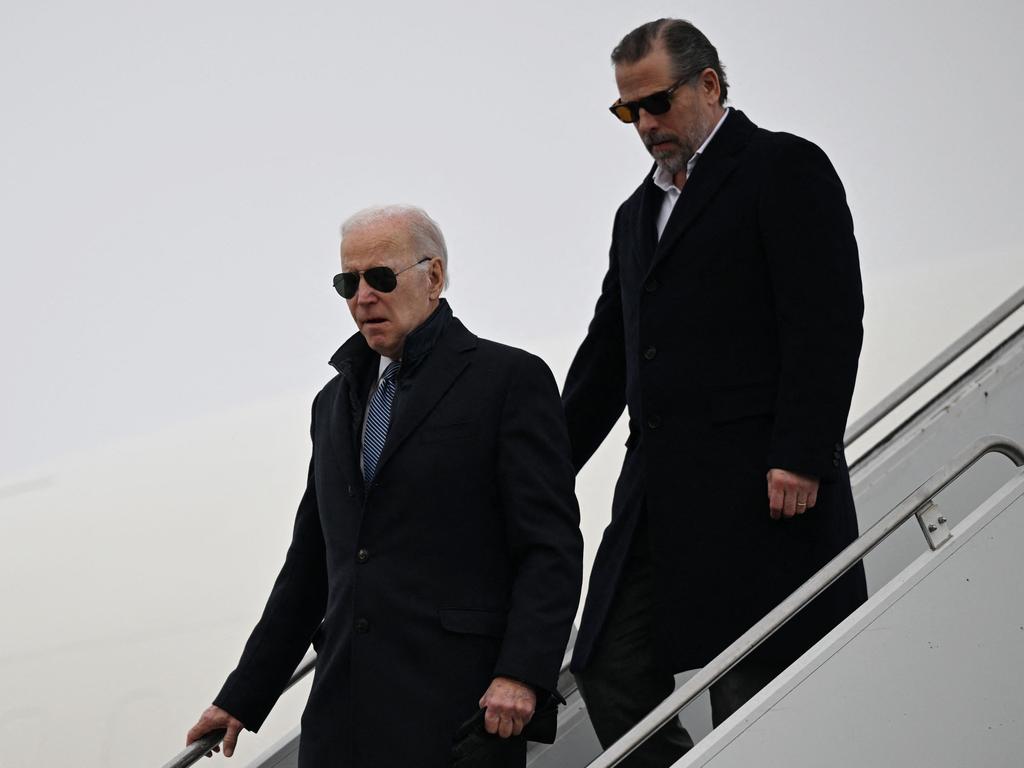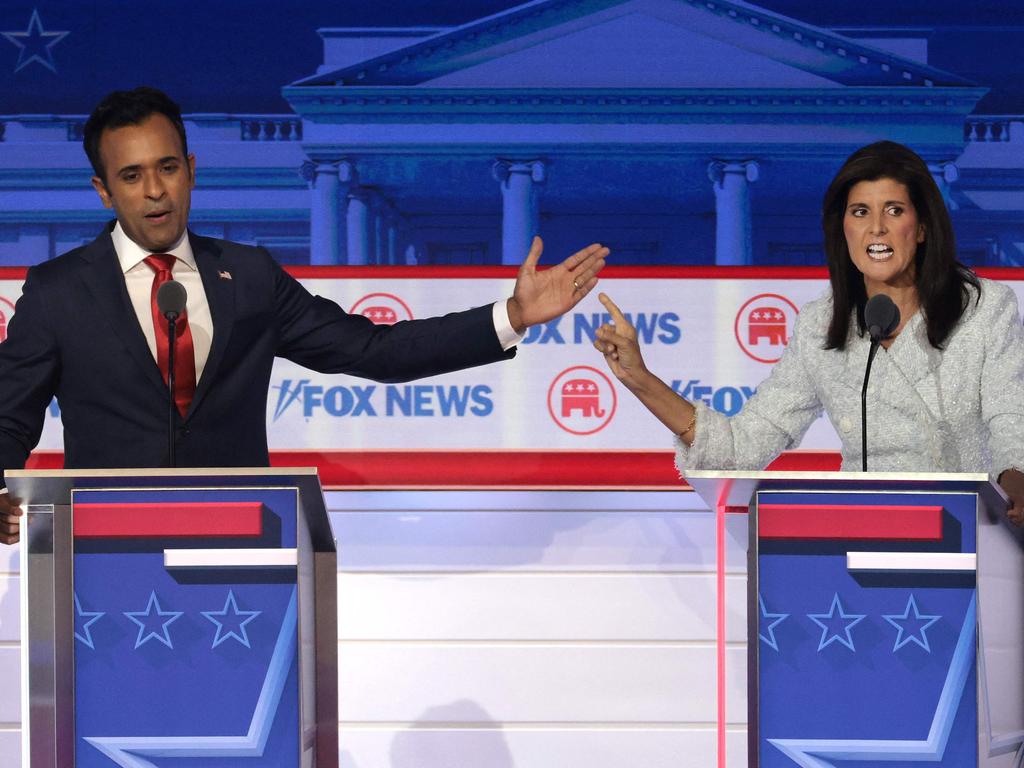Don’t dare question the narrative in an age of inverted morality


I’m not talking about the harmless white lies that grease social interaction, but rather the bald-faced false assertions that mislead the recipient into acting differently from how he or she would otherwise have.
Indeed, in some contexts lying is even illegal, fraud.
By contrast, good-faith disagreements over politics, life choices, religion, the efficacy of Chinese medicine, even the existence of UFOs, are tolerated – even welcomed – among friends and family, a reflection of the diversity of the human condition and experience.
The US presidential campaign highlights how this morality is inverted in the public sphere. Lying is tolerated, even ignored, while good-faith disagreements are savaged. A candidate who challenges the conventional wisdom or has a different interpretation of the facts gets dragged over the coals in the media.
It’s become clear as new evidence, including from Hunter Biden’s laptop and congressional investigations, has emerged about the Biden family’s history of influence peddling, that President Joe Biden has lied numerous times in recent years.
We now know, for instance, the President’s son travelled on AirForce Two with the then vice-president at least 13 times to nations where Hunter was doing business. Bank records show millions in payments from foreigners to Biden family shell companies.
Yet throughout 2019 and 2020 the older Biden repeatedly stated he “never spoke” to his family about their business dealings, that his family didn’t receive millions in payments from foreigners, that his son “never made money” in China, and had done “nothing wrong”.
Even the White House press secretary no longer makes these claims.
Yet the overwhelming bulk of the US media is more interested in savaging other political candidates, not for lying, but for wrongthink, challenges to the conventional wisdom.

Republican presidential candidate Vivek Ramaswamy, a 38-year-old former biotech entrepreneur who graduated with high honours from Harvard and Yale in science and law, respectively, committed a cardinal and potentially fatal sin this month when he dared to question a government report into the September 11 terrorist attacks.
“Do I believe our government has been completely forthright about 9/11? No. Al-Qa’ida clearly planned and executed the attacks, but we have never fully addressed who knew what in the Saudi government about it,” he bravely declared, prompting a deluge of condemnation from major US media outlets.
“Conspiracy theorist,” they screamed, demanding retraction.
A glutton for punishment, Ramaswamy in the first Republican candidate presidential debate last week follow up by claiming the climate change agenda was a “hoax”. “The reality is more people are dying of bad climate change policies than they are of actual climate change,” he added.
Comically, his remark, which was obviously an opinion, was immediately “fact checked” by the Washington Post, and given “4 Pinocchios”, the masthead’s most extreme rating for a falsehood.
Efforts to condemn wrongthink have been even more intense for Democratic candidate Robert F Kennedy Jr, who as far as I can tell makes careful, factually based criticisms of the quality of safety trials for vaccines since US manufacturers were granted total indemnity from injury claims in 1986 – a unique legal framework.

Despite all the sneering excoriation, Kennedy repeatedly says he is not against vaccines but rather tougher testing of them.
Farcically, ABC News, one of the big US news networks, in April refused to even broadcast part of an interview with him. “We should note that during our conversation, Kennedy made false claims about the Covid-19 vaccines,” anchor Linsey Davis said later, as if no one had ever uttered a falsehood on ABC News before.
“We’ve used our editorial judgment in not including extended portions of that exchange in our interview.”
Why has ABC News, which has interviewed dictators and religious fundamentalists over the years, not removed interviews that include claims about weapons of mass destruction in Iraq, Hunter Biden’s laptop as “Russian disinformation”, arguments Donald Trump colluded with Russian in 2016. The list of broadcast nonsense is endless.
Neither Ramaswamy nor Kennedy has lied during their campaigns, at least not on the industrial scale of Joe Biden in recent years. But they have committed wrongthink.
To be sure, Trump as president wildly exaggerated and lied too, but the media were more animated by his wrongthink, be it over his opinions on the 2020 election, or when he had the audacity to claim “very fine people” were on both sides of a debate (except the neo-Nazis) that turned violent over removal of statues in Charlottesville in 2017.
What does all this wrongthink have in common? It’s not necessarily that it poses a threat to the revenue streams of powerful corporate interests, as commonly claimed.
It is the brazen challenge to the bureaucracy, “experts” and their political pieties. In an era where more and more political power has been ceded by governments and parliaments to the bureaucratic class, its political and social mores hold far greater sway.

Indeed, governments increasingly appear to care little for the objective facts anyway. Meta CEO Mark Zuckerberg in June complained that the US government had “asked for a bunch of things to be censored that, in retrospect, ended up being more debatable or true”, referring to the unprecedented government push, in the US and elsewhere world, to stamp out opposition to vaccine mandates and lockdowns.
Those who make arguments that challenge the conventional wisdom, which includes having different views on the urgency and effectiveness of slashing carbon dioxide emissions or escalating the war in Ukraine, are cast as malevolent, stupid or liars.
History shows governments, like individuals, are self-interested and fallible. Dogmas wax and wane. Life is complex, and truth, even scientific, can be hard to pin down. But none of this seems to matter in our political debate.
Highly educated individuals who challenge orthodoxies, risking their social standing in the process, should be listened to more than the lemmings who parrot the orthodoxy without any understanding of the underlying issues.
Would you divorce your spouse if they suggested the US government’s 9/11 Report may well have left out some facts in the interests of political expediency? Or if one evening they mused, “you know, dear, maybe the regulatory structure surrounding vaccines isn’t ideal”?
You’d be much more concerned if he or she lied to you. But in politics, the opposite morality prevails: lie with impunity, but by golly don’t question The Narrative.







Being lied to by friends or family members is an unpleasant, potentially devastating experience, eroding trust, sowing doubt about the liar’s intentions and credibility.